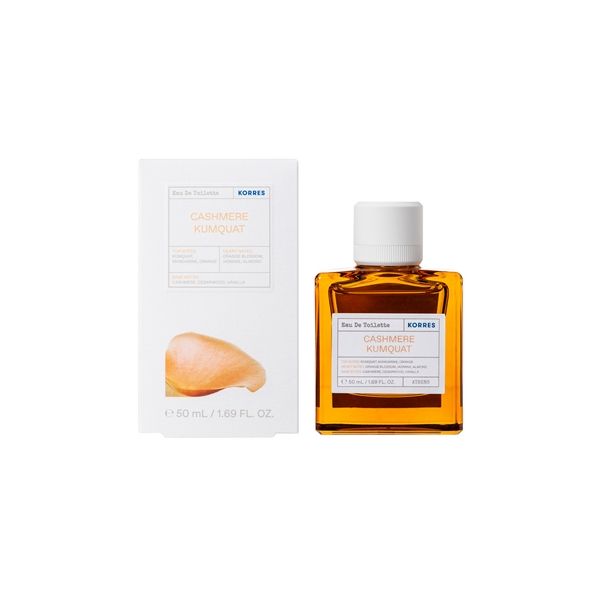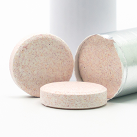Blog
Everything You Need To Know About Collagen
If you are interested in skin care, then you have probably already heard about the importance of collagen. It is the substance that keeps the skin youthful, tight and firm. But in reality, collagen is much more than that. About 30% of the human body is made up of collagen, which is important for dozens of other functions. See how you can keep it at a high level, especially after the age of 20 when its production is steadily decreasing. Collagen comes from the greek word “kolla”, which means glue . Indeed, it is distinguished for its ability to retain the structure not only of the skin, but also of bones, muscles, tendons, cartilage, ligaments and teeth. It’s an essential protein family. To be precise, it is the richest protein family in the animal kingdom.
Types of collagen
There are at least 28 different types of collagen in the human body. They differ depending on the composition of their amino acids, but formulas I, II and III are the most common. Type I is the most powerful. In fact, it is even stronger than steel – compared to the gram level – and makes up 90% of the collagen in the human body (found mainly in the skin, tendons and bones). Type II is softer and is found in cartilage. Type III is found mainly in muscles, organs and arteries.
What is the role of collagen?
Collagen helps build the structure of the skin, bones, cartilage and muscles, helping the tissues to be more elastic and to withstand stretching. The body is able to synthesize collagen through fibroblasts, provided they have the necessary amino acids and nutrients. It is a natural process that takes place throughout our lives, but decreases as the years go by. Collagen production already begins to derease after the age of 20. In addition to age, overexposure to the sun, smoking, alcohol, lack of sleep and unhealthy diet also play an aggravating role.
How do collagen supplements work?
Collagen supplements don’t replenish collagen in the body, as collagen is broken down in the stomach into amino acids, from which the body produces various proteins, including collagen.
The benefits of collagen intake
Skin:
One of the most important studies on the benefits of collagen for the skin was published in 2019 in the review “Journal of Drugs in Dermatology”. In this research it was found that collagen peptides enhance the levels of elasticity and hydration of the skin, thus preventing dehydration and the formation of wrinkles. In addition, taking a collagen supplement promotes the production of other proteins that support skin structure, such as elastin and fibrilline. There is also evidence that it helps prevent acne and other skin conditions.
Ligaments and cartilage:
As collagen levels decrease over the years, the chances of developing degenerative joint diseases, such as osteoarthritis, increase. Clinical studies have shown that people who took a type II collagen supplement for 180 days noticed an improvement in bodily function and joint mobility. In addition, collagen supplements have been found to reduce joint pain and inflammation.
Intestinal function:
One of the key amino acids in collagen, L-glutamic acid, supports intestinal function, as it is an important source of fuel for intestinal cells.
Bones and muscles:
A scientific study found that men who took collagen daily while following an exercise program gained more muscle mass than men who only performed the exercise program, as muscle mass is 1-10% of collagen. In addition, collagen uptake appeared to contribute to the synthesis of muscle proteins, such as creatinine. In the same study, it was observed that postmenopausal women taking collagen supplement had increased bone density.
Heart:
Research has shown that collagen supplements help reduce cardiovascular disease, as collagen provides support to the structure of the arteries, the blood vessels that carry blood from the heart to the rest of the body. Without enough collagen, the arteries become weak and fragile. This can lead to atherosclerosis increasing the chance of a heart attack or stroke. In addition, clinical studies have shown that taking a collagen supplement can increase levels of “good” cholesterol (HDL), which is an important factor in heart health, by 6%.
Other benefits:
Collagen supplement can strengthen nails, preventing their fragility. It can also contribute to hair growth. It also seems to have benefits for brain function, as several people have reported improved mood and reduced anxiety symptoms. In addition, it seems to have a positive effect on the boost of metabolism, thus helping to lose weight.
How long does it take for the collagen supplement to work?
The results of taking a collagen supplement usually take a long time to be noticeable. Of course, this depends on the type of supplement you choose. Below are the indicative times of its action.
Skin strengthening: 4 to 12 weeks
Muscle mass and strengthening (in combination with an exercise program): 3 months
Joint health support: 4 to 6 months
Tendon strengthening (in combination with strengthening exercises): 3 to 6 months
Bone density increase: 12 months
Nail and hair strengthening: 6 months
Reduced strain due to exercise: a few days
What type of collagen supplement should you prefer?
Collagen supplements come in various forms: in powder, in capsules, in liquid form, etc. The decision is a matter of personal choice. In general, however, powders contain a higher dose of collagen that can reach up to 15-20 grams. In contrary, the collagen content is lower in liquid versions. However, you could choose a lower dose supplement if the collagen is accompanied by additional bioactive ingredients.
4 + 1 ways to boost collagen production
. Taking a collagen supplement should not be an excuse for not following a healthy lifestyle that protects against collagen damage. For example, you should get enough sleep (7-9 hours), not consume too much alcohol and avoid smoking.
. Some protein-rich foods contribute to the production of collagen, as they contain valuable amino acids for its formation, such as lysine, proline and hydroxyprolin. So boost your diet with fish, poultry, meat, eggs, dairy, legumes and soy.
◊ Collagen production also requires certain nutrients, such as zinc (found in shellfish, legumes, meats, nuts, seeds and whole grains), but also vitamin C (found in citrus fruits, green leafy vegetables, peppers and tomatoes) and vitamin A (found in sweet potatoes, spinach, carrots and mango).
. Fight stress. High cortisol levels reduce collagen production.
+ Silicon!
Silicon is a precious metal for the endogenous production of collagen and therefore for the maintenance of a youthful, firm skin, but also for the architectural structure of bones, ligaments, cartilage, blood vessels and skeletal structures. In addition, it creates strong bonds with a special protein of the body, the glycosaminoglycans, which have the ability to hold 1,000 times their weight in water and therefore contribute to the hydration of the skin.

 Ελληνικά
Ελληνικά









































